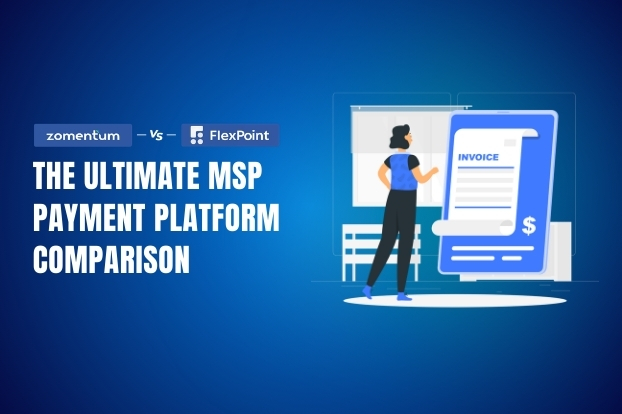3 Types of CRM Software: Choose the Best for Your Business

Irrespective of the size a company, managing customers is the absolute driver of success for any business.
Managing a customer database in tons of spreadsheets, jumping from one document to another to find leads or data, or listing sales opportunities on Post-it notes is no longer an option!
Marketers, sales teams, and business owners today understand the importance of Customer relationship management (CRM) software – it is the one that can drive sales, enhance customer service and retention, and improve the overall efficiency in a business.
However, a CRM tool is only as effective as how it is put to use.
Perhaps businesses realize significant gains almost immediately after they begin using a CRM tool. While it is important to use one, choosing the right CRM software that suits the business can be a bigger challenge.
Learning about the different types of CRM software and what each type does can help you choose the one that suits your business.
The three main types of CRM software,
Operational CRM: Uses sales and marketing automation to offer a comprehensive view of every customer’s journey.
Analytical CRM: Analyzes customer data and identifies patterns to enable better decision-making.
Collaborative CRM: Organizes and shares customer data with both internal and external stakeholders.
Most types of CRM software have various modules to help track separate silos of information like sales automation, relationship management, or data management.
Companies often use multiple types of CRM software depending on their requirements, as each tool is optimized for a specific bunch of tasks. For instance, an operational CRM tool can streamline all customer-facing interactions, but may not be very effective for strategic planning. Similarly, an analytical CRM tool can forecast sales and build brilliant buyer personas, but may not be useful for marketing automation.
Operational CRM
Operational CRM tools help manage the day-to-day business operations, streamlining the process of lead generation and conversion. Operational CRM tools enable better customer-facing interactions and can handle quite a few comprehensive processes, including sales, marketing, and service automation.
Operational CRM software allows teams to track customer life cycles and comprehensively analyze every interaction that customers have with the company. This enables marketers to improve the quality of customer interactions as they are readily equipped with information about their customers.
Sales teams or marketers can pick up from where they left off in their relationship with the customer. It also enables personalization tailored to each stage of a prospect’s buying journey.
Features and benefits of Operational CRM
Sales automation
Operational CRM helps a company manage leads and existing customers better. It regulates interactions throughout the customer life cycle, seamlessly assigns tasks to sales teams, and prevents potential leads to fall through the cracks. Operational CRM software also notifies sales executives to follow-up with prospects and current customers.
Marketing automation
Operational CRM software offers campaign management modules that can be very helpful in building campaigns to nurture leads. It directs prospects to the appropriate funnel, making the sales process more seamless and efficient. Operational CRM tools help determine the most suitable channel (social media, email, phone calls, etc.) to reach out to specific prospects, to enhance the likelihood of closing a deal.
Service automation
Operational CRM tools significantly improve customer service operations, enabling teams to efficiently handle calls and customer concerns. Customer service executives can identify and optimize areas of improvement in their processes, and keep track of key performance indicators with the CRM to enhance the quality of customer service.
Contact management
Operational CRM tools can store important customer information and make it readily available to relevant team members in a company. As a result, contacts are less in need of one single member in a team, making it easier for different team members to cater to customers on time, and thereby improving customer relationships.
Lead scoring
The lead scoring capabilities of an operational CRM tool enable teams to prioritize leads and determine the best possible ways to nurture them. Sales teams can decide on the leads that are more responsive to automation or personalization. It can also help understand the potential value that a prospect is likely to bring to the company.
Who should use operational CRM?
· People in customer-facing roles like sales professionals and marketers who need workflows to be partly or fully automated.
· Marketers looking to organize and effortlessly access customer information to improve lead scoring and scaling marketing operations.
· Assigning individual responsibilities to streamline workflows for managers.
Analytical CRM
Analytical CRM allows organizing and analyzing customer and sales data. The data mining capabilities of analytical SRM tools provide granular information about prospects and customers.
On a macro scale, analytical CRM tools can also track customer retention rates, customer life cycles, and other structural information. It provides the facts and numbers needed to back or refute the perceptions that are built within teams about the business.
Among all the other types of CRM software, analytical CRM helps organize and comprehend data, perhaps revealing opportunities and relationships that the company wasn’t aware of. It empowers businesses with smarter, and more effective marketing capabilities to deliver more value to customers.
Features and benefits of Analytical CRM
Buyer personas
· Data mining capabilities that can help build buyer personas
· Helps organize data, making existing personas more robust
· Helpful in discovering new personas to target
Sales forecasting
· Tracking seasonal fluctuations in demand or make predictions on hot sellers based on specific buyer personas
· Provides business flexibility to meet growing demands, keeping the existing inventory
Attribution
· Allows tracking customer touchpoints throughout their relationship with the business
· Helps determine the happiness quotient of customers and consequently regulate marketing efforts
Data management
· Collects and stores customer data, and helps organize it in meaningful ways
· Makes huge volumes of data intelligible and useful to the business
Purchase history
· Tracking customer behavior
· Tracking the lifetime value of customers and the products that appeal to each buyer persona
· Identify up-sell and cross-sell opportunities
Who should use analytical CRM?
· Teams that require a holistic overview of the effectiveness of their efforts on sales, marketing, and customer service, and make data-driven progress in each department
· Operational heads who are looking to track KPIs and determine areas of growth in sales and marketing. Leaders can specify valuable touchpoints for their marketing teams and the leads they need to focus on, based on their forthcoming lifetime value.
· For professionals looking to learn more about their buyer personas
· Business heads looking to make informed decisions based on huge volumes of data
Collaborative CRM
Many companies face difficulties while sharing sensitive customer data between departments. Collaborative CRM tools are platforms designed to facilitate the seamless exchange of data within teams and departments. It provides an outline of the complete customer lifecycle and allows each team member to add or edit information or needed.
Collaborative CRM tools have modules that help build customer profiles based on the information collected during their earlier interactions with a company. These profiles may include customer goals, the ideal mode of contact, and pertinent documents. With this type of CRM software, stakeholders inside or outside a company can have access to customer information as and when they need it.
Among the different types of CRM software, collaborative CRM allows customer service professionals to manage the various stages of the company’s relationship with an existing customer. It also helps understand past instances and causes of friction experienced by customers, enabling easier problem-solving in the future. Collaborative CRM helps retain, satisfy, and serve existing customers better, and also attract and retain new customers.
Features and benefits of Collaborative CRM
Relationship management
Manage customer/client relationships, while keeping all departments informed about customers before interacting with them.
Document management
Instant access to documents previously submitted by customers by any member of the customer management team.
Interaction management
Documentation of every single interaction between a customer and the company. Spot areas of improvement in the service process, which is vital for customer retention.
Channel management
Different customers prefer different communication channels to interact with. Collaborative CRM tools help understand which channel is effective in attracting and converting leads, thereby redirecting marketing resources as needed.
Who should use collaborative CRM?
· Managers looking for better coordination of workflows between departments in the organization
· Large businesses looking to retain or contact an established customer base in specific ways, harmonize customer interactions and deliver a consistent experience each time
· Customer service teams looking to build customer loyalty, improve service, and retain new customers
Tips to Evaluate CRM Software
It is important to invest time to closely follow customers along their journey and observe all their interactions with the company – right from the moment they first discover your company, and the subsequent sales and service activities.
Different stakeholders in the company might be in need of multiple types of CRM software; it is important to bring them together to get an idea of what works well for them, and precisely understand how customer data is handled.
The most important point to remember is to never lose sight of the customer in the quest to find the right type of CRM software. If a CRM tool does not facilitate a rich understanding of customers to improve customer service, it doesn’t matter.
Explore Zomentum's CRM by scheduling a demo with us.
Suggested Blogs
.jpg)
10 Best Quoting Software Tools for MSPs and IT Service Providers

FlexPoint vs Zomentum Payments: The Ultimate MSP Payment Platform Comparison for 2026

